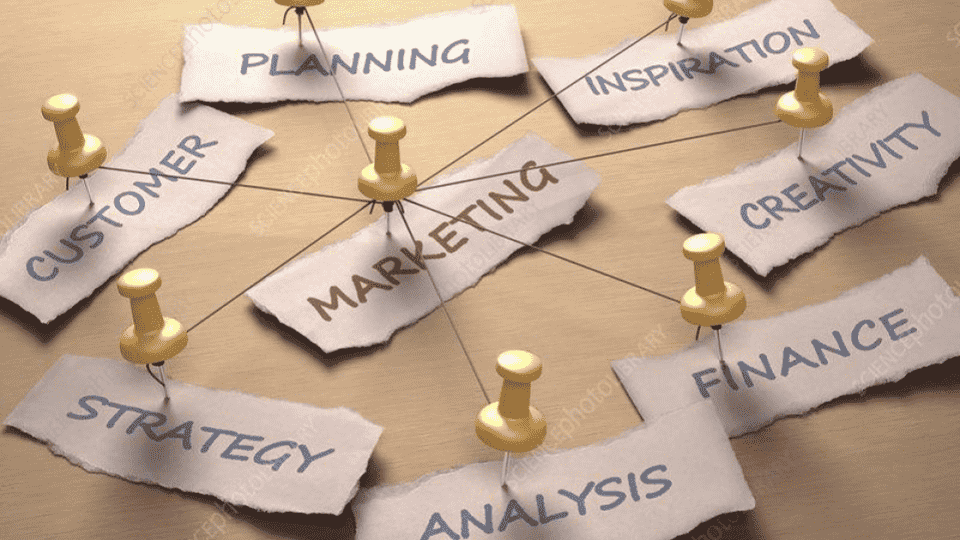Essential Marketing and Lead Generation Skills Acquired Through a Business Program
Success hinges on a company's ability to attract and retain customers. The essence of this challenge lies in strategic marketing and lead generation skills, which is identifying potential customers and nurturing them through the sales funnel. However, basic marketing approaches are no longer sufficient. Companies need strategic marketing skills to implement highly targeted, data-driven, and adaptable lead-generation strategies.

An MBA degree offers an extensive toolkit for mastering strategic marketing and lead generation. This article explores how a business program helps professionals excel in lead generation by focusing on key marketing skills.
Understanding Strategic Marketing and Lead Generation
Firstly, let's define strategic marketing and its relationship with lead generation. Strategic marketing is a holistic approach that involves identifying long-term business goals, understanding customer needs, and creating value for both the customer and the company. It requires a deep understanding of the market, competition, and consumer behavior, allowing businesses to develop marketing strategies that not only drive immediate sales but also foster long-term brand loyalty.
Meanwhile, lead generation is a subset of marketing that focuses on attracting potential customers (or leads) and moving them through the sales funnel. Effective lead generation is no longer just about volume—it's about quality. The best leads are those most likely to convert into paying customers. A strategic approach to marketing and lead generation is vital because it helps businesses focus their efforts, optimize marketing budgets, and achieve higher conversion rates.
What Are The Key Marketing Skills Gained in a Business Program?
A business program equips students with various marketing skills, from traditional marketing techniques to modern digital strategies. These skills are invaluable for creating and executing successful lead-generation strategies. Let's dive into the key competencies that help to develop and apply to lead generation.

1. Market Research and Customer Segmentation
One of the foundational elements of any marketing strategy is understanding the target audience. A business program emphasizes the importance of market research gathering, analyzing, and interpreting data about the market environment. Market research allows businesses to identify potential customer segments, understand their needs, and uncover market trends.
Customer segmentation, which involves dividing the target audience into distinct groups based on shared characteristics (such as demographics, behaviors, or purchasing habits), is critical for lead generation. Mastering market research and segmentation, can help in identifying high-potential leads and develop targeted campaigns to engage them more effectively.
2. Brand Positioning and Value Proposition Development
Lead generation is not just about attracting potential customers; it's also about differentiating your business from competitors. This is where brand positioning and crafting a compelling value proposition come into play. When it comes to lead generation, a well-positioned brand with a clear value proposition attracts higher-quality leads. These leads are more likely to convert because they understand the unique benefits that the company provides and are motivated by those benefits.
3. Integrated Marketing Communications
Marketing must be consistent across various platforms whether it's social media, email, websites, or traditional media. A business program teaches about integrated marketing communications (IMC), which ensures that all marketing messages are cohesive, aligned, and work together toward common goals.
Companies must engage potential customers at multiple touchpoints throughout their buying journey. Whether it's creating engaging content for social media, sending targeted email campaigns, or optimizing a website for lead capture, having a unified communication strategy ensures that potential leads receive consistent messaging that builds trust and encourages conversion. This program teaches how to design and execute IMC strategies, giving skills to create seamless lead-generation experiences that enhance customer engagement.

4. Digital Marketing and Data-Driven Lead Generation
Through social media platforms, search engine optimization (SEO), content marketing, and paid advertising, businesses can reach their target audience in more personalized and measurable ways than ever before. These programs increasingly emphasize digital marketing strategies, helping in understanding how to leverage tools like Google Analytics, social media advertising, and email marketing to optimize lead-generation efforts. The use of these platforms helps to understand the user journey through the sales funnel and adjust marketing strategies in real-time.
5. Customer Relationship Management (CRM)
Customer Relationship Management (CRM) systems are essential tools for modern lead generation. CRM platforms help businesses track interactions with leads, nurture relationships over time, and personalize marketing efforts based on customer preferences and behaviors. A business program helps to learn how to leverage CRM systems like Salesforce, HubSpot, and Zoho to manage leads effectively.
These systems store valuable customer data, allowing businesses to automate follow-up communications, segment their audiences, and tailor messages to different stages of the buyer journey. It can also help to develop skills in analyzing CRM data to gain insights into lead performance. This allows them to fine-tune their strategies for more effective lead generation and conversion.

6. Strategic Decision-Making and Leadership
One of the core competencies gained in a business program is strategic decision-making. You are trained to think critically and holistically about business challenges, including how to allocate marketing budgets effectively, which channels to prioritize for lead generation, and how to measure success. Moreover, a business program hones leadership skills that are crucial for managing marketing teams and executing lead-generation strategies.
Beginners are equipped to lead cross-functional teams, coordinate with sales departments, and ensure alignment between marketing and overall business objectives. Strategic thinking and leadership skills are particularly important in lead generation, where marketing managers must continually adapt their strategies to changes in the market, customer preferences, and technology.
7. Sales and Marketing Alignment
Successful lead generation doesn't stop at marketing; it requires seamless alignment with sales teams to convert leads into customers. Sales and marketing alignment is a major focus in these programs, emphasizing the need for collaboration between the two functions. By aligning key performance indicators (KPIs) and communication channels between sales and marketing, businesses can create a more efficient lead funnel, improving overall conversion rates.
This skill is particularly valuable for professionals who want to manage lead-generation efforts. It fosters a more collaborative approach that enhances the quantity and quality of leads while improving the customer experience.
Practical Applications of Marketing Skills in Lead Generation

After developing these key marketing skills in a business program, you are well-prepared to apply them to lead generation in practical ways:
a. Creating Targeted Campaigns: Marketing beginners can develop highly targeted lead-generation campaigns that speak directly to their audience's needs using market research and segmentation skills.
b. Optimizing Marketing Budgets: Strategic decision-making helps beginners prioritize marketing channels and allocate resources to maximize lead-generation efforts.
c. Enhancing Lead Quality: With a strong value proposition and brand positioning, businesses can attract higher-quality leads who are more likely to convert into loyal customers.
d. Measuring Success: Marketing beginners are adept at using data analytics tools to track lead generation performance, make real-time adjustments, and continuously improve results.
Conclusion
From developing targeted marketing strategies to leveraging digital tools and CRM systems, marketing beginners possess the skills necessary to drive lead generation in today's dynamic business environment. As companies continue to prioritize data-driven marketing and lead generation strategies, the competencies gained through a business program will be more valuable than ever for driving success in a competitive marketplace.



